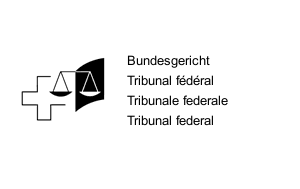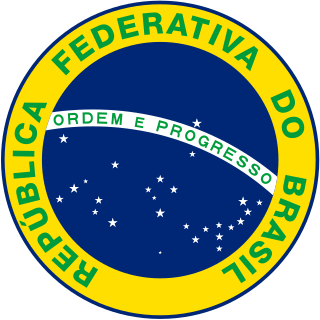Related Research Articles

Switzerland is a semi-direct democratic federal republic. The federal legislative power is vested in the two chambers of the Federal Assembly: the National Council and the Council of States. The Federal Council holds the executive power and is composed of seven power-sharing Federal Councillors elected by the Federal Assembly. The judicial branch is headed by the Federal Supreme Court of Switzerland, whose judges are elected by the Federal Assembly.

Article Three of the United States Constitution establishes the judicial branch of the U.S. federal government. Under Article Three, the judicial branch consists of the Supreme Court of the United States, as well as lower courts created by Congress. Article Three empowers the courts to handle cases or controversies arising under federal law, as well as other enumerated areas. Article Three also defines treason.

A federated state is a territorial and constitutional community forming part of a federation. Such states differ from fully sovereign states, in that they do not have full sovereign powers, as the sovereign powers have been divided between the federated states and the central or federal government. Importantly, federated states do not have standing as entities of international law. Instead, the federal union as a single entity is the sovereign state for purposes of international law. Depending on the constitutional structure of a particular federation, a federated state can hold various degrees of legislative, judicial, and administrative jurisdiction over a defined geographic territory and is a form of regional government.

Case citation is a system used by legal professionals to identify past court case decisions, either in series of books called reporters or law reports, or in a neutral style that identifies a decision regardless of where it is reported. Case citations are formatted differently in different jurisdictions, but generally contain the same key information.

The Federal Court of Justice is the highest court of civil and criminal jurisdiction in Germany. Its primary responsibility is the final appellate review of decisions by lower courts for errors of law. While, legally, a decision by the Federal Court of Justice is only binding with respect to the individual case in which it enters, de facto the court's interpretation of the law is followed by lower courts with almost no exception. Decisions handed down by the Federal Court of Justice can only be vacated by the Federal Constitutional Court for violating a provision of the German constitution, the Basic Law.

William Rufus Day was an American diplomat and jurist who served as an associate justice of the Supreme Court of the United States from 1903 to 1922. Prior to his service on the Supreme Court, Day served as United States Secretary of State during the administration of President William McKinley. He also served as a United States circuit judge of the United States Court of Appeals for the Sixth Circuit and the United States Circuit Courts for the Sixth Circuit.

The Federal Supreme Court of Switzerland is the supreme court of the Swiss Confederation and at the head of the Swiss judiciary.
The court system of Canada forms the country's judiciary, formally known as "The King on the Bench", which interprets the law and is made up of many courts differing in levels of legal superiority and separated by jurisdiction. Some of the courts are federal in nature, while others are provincial or territorial.

The Federal Assembly, also known as the Swiss parliament, is Switzerland's federal legislature. It meets in Bern in the Federal Palace.

The Judiciary of Russia interprets and applies the law of Russia. It is defined under the Constitution and law with a hierarchical structure with the Constitutional Court and Supreme Court at the apex. The district courts are the primary criminal trial courts, and the regional courts are the primary appellate courts. The judiciary is governed by the All-Russian Congress of Judges and its Council of Judges, and its management is aided by the Judicial Department of the Supreme Court, the Judicial Qualification Collegia, and the Ministry of Justice, and the various courts' chairpersons. And although there are many officers of the court, including jurors, the Prosecutor General remains the most powerful component of the Russian judicial system.

The Federal Constitution of the Swiss Confederation of 18 April 1999 is the third and current federal constitution of Switzerland. It establishes the Swiss Confederation as a federal republic of 26 cantons (states). The document contains a catalogue of individual and popular rights, delineates the responsibilities of the cantons and the Confederation and establishes the federal authorities of government.

The judicial system of Turkey is defined by Articles 138 to 160 of the Constitution of Turkey.
Voting in Switzerland is the process by which Swiss citizens make decisions about governance and elect officials. The history of voting rights in Switzerland mirrors the complexity of the nation itself. The polling stations are opened on Saturdays and Sunday mornings but most people vote by post in advance. At noon on Sunday, voting ends and the results are usually known during the afternoon.

In the United States, judicial review is the legal power of a court to determine if a statute, treaty, or administrative regulation contradicts or violates the provisions of existing law, a State Constitution, or ultimately the United States Constitution. While the U.S. Constitution does not explicitly define the power of judicial review, the authority for judicial review in the United States has been inferred from the structure, provisions, and history of the Constitution.

In most legal jurisdictions, a supreme court, also known as a court of last resort, apex court, and highcourt of appeal, is the highest court within the hierarchy of courts. Broadly speaking, the decisions of a supreme court are not subject to further review by any other court. Supreme courts typically function primarily as appellate courts, hearing appeals from decisions of lower trial courts, or from intermediate-level appellate courts.

The Supreme Court of Mississippi is the highest court in the state of Mississippi. It was established in 1818 per the terms of the first constitution of the state and was known as the High Court of Errors and Appeals from 1832 to 1869. The court is an appellate court. The court consists of nine justices elected in nonpartisan contests from three districts to serve eight-year terms. The most senior justice serves as the chief justice. It is housed in the Carroll Gartin Justice Building in Jackson, Mississippi, the state capital.
Women in Switzerland gained the right to vote in federal elections after a referendum in February 1971. The first federal vote in which women were able to participate was the 31 October 1971 election of the Federal Assembly. However it was not until a 1990 decision by the Federal Supreme Court of Switzerland that women gained full voting rights in the final Swiss canton of Appenzell Innerrhoden.

The Federal Government of Brazil is the national government of the Federative Republic of Brazil, a republic in South America divided into 26 states and a federal district. The Brazilian federal government is divided into three branches: the executive, which is headed by the President and the cabinet; the legislative, whose powers are vested by the Constitution in the National Congress; and the judiciary, whose powers are vested in nine organs, including the Supreme Federal Court and lower federal courts. The seat of the federal government is located in Brasília.
Martha Niquille-Eberle,, is a Swiss jurist and judge at the Federal Supreme Court of Switzerland in Lausanne. In 2021, and after ninety seven male presidents, she assumed she as its president as the first woman. She is a member of the political party The Centre.